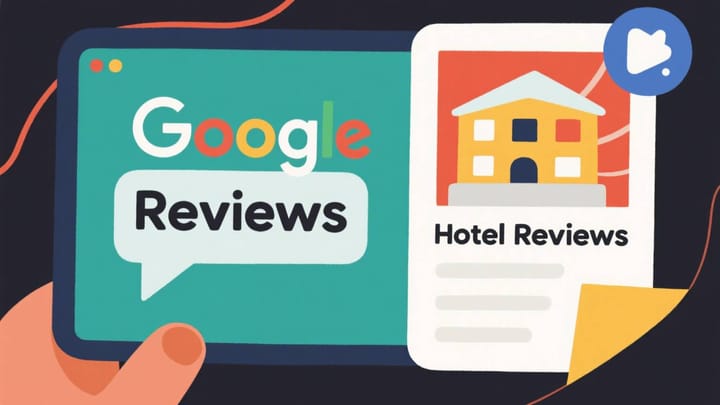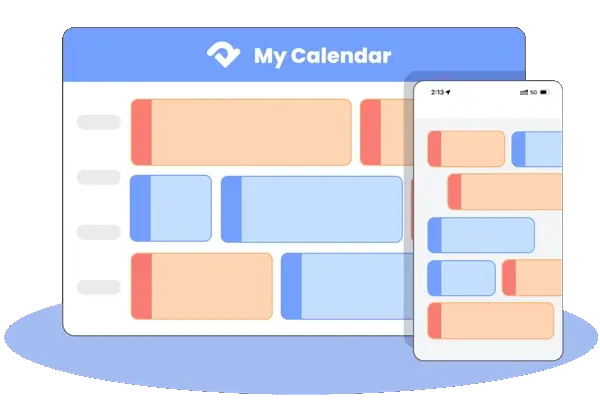Nowadays, travelers planning a trip usually start with a search engine. When looking for places to stay, Google hotel reviews really shape their choices. For hotel owners, understanding and using these reviews isn’t optional anymore. They need to do it to keep up with others. This guide covers what you should know about Google hotel reviews and how they can help your business get more bookings
What Are Google Hotel Reviews
Google hotel reviews are what guests write about their stay at your place. When people search for your hotel on Google or Maps, these reviews pop up. They’re not just comments – guests give star ratings (1 to 5 stars), share their experiences in writing, and sometimes add photos or videos they took.
Anyone who’s stayed at your hotel can leave a review, and everyone searching for your place can see them. Since they’re public, these reviews really shape how future guests view your hotel. What makes Google reviews different is they’re connected to your hotel’s Google listing. That means people find them easily while they’re searching, right when they’re making decisions.
Why Google Hotel Reviews Matter for Hoteliers
- Google hotel reviews show real guest experiences. When people pick a hotel, they trust what other travelers say more than what the hotel says. Good reviews make guests feel sure they’ll have a nice stay. Bad reviews? They’ll probably look somewhere else.
- They build trust. With so many hotels out there, trust is key. Seeing that others had a great time makes new guests more likely to book. Even if you get a bad review, responding nicely shows you care. It proves you listen and want to fix problems. That builds trust too.
- They give you helpful tips. Guests tell you what they loved (like friendly staff or tasty breakfast) and what went wrong (like a noisy room or slow service). This info is super useful. It shows you what you’re doing well and what needs to get better.
How Google Hotel Reviews Affect Hotel Rankings and Bookings
- Google likes new reviews. Google’s algorithm prefers fresh content, and Google hotel reviews are a big part of that. Hotels with more good reviews and higher star ratings usually show up higher in search results. When you rank higher, more people see your hotel, which means more chances to get bookings.
- More reviews = more trust. A hotel with 100 reviews looks more reliable than one with only 10, even if the star rating is the same. Google sees lots of reviews as a sign your hotel is popular and matters. This can help push your hotel higher in the rankings too.
- Good ratings mean more bookings. We know hotels with 4 stars or higher get more bookings than those with lower ratings. People are more likely to click on a hotel with good Google hotel reviews. When they read positive stories from other guests, they’re more likely to book. Bad reviews, especially ones talking about serious problems like dirty rooms or safety issues, can make people choose another hotel.
The Foundation: Optimizing Your Google Presence
- Claim your profile: First, claim and confirm your hotel’s Google Business Profile. This is your hotel’s official home on Google.
- Fix your details: Make sure all your info is right. This includes your address, phone number, check-in/check-out times, and what you offer (like free Wi-Fi or parking).
- Add good photos: Upload clear photos of your rooms, lobby, restaurant, and anything else that shows why your hotel is special.
Why this helps: A complete and correct profile makes it easy for guests to find you. It also gives them a good first look at your place. When people see a nice profile, they’re more likely to leave Google Hotel Reviews after their stay.
How to Get More Positive Google Hotel Reviews
- Focus on great service: Happy guests leave good reviews. Teach your team to be friendly and helpful. Small things matter – like remembering a guest’s name or giving a little upgrade. When people have a great stay, they often want to share it.
- Just ask! Many guests will leave a review if you remind them. After they check out:
Send a quick email or text. Thank them for staying.
Politely ask if they’d share their experience on Google.
Include a direct link to your Google review page to make it super easy. - Ask in person too: If a guest seems happy at checkout, say something simple like: “We’re glad you enjoyed your stay! If you have a minute, we’d really appreciate a Google review. It helps other travelers find us.”
- Ask at the right time: Don’t wait too long. Ask while their stay is fresh in their mind – usually within a day or two after they leave.
- Keep it simple: If leaving a review is hard, even happy guests won’t do it. Make sure the process is quick and easy.
Why this works: Great service is the best start. Asking nicely and making it easy gets more people to actually write those valuable Google Hotel Reviews.
How to Manage Google Hotel Reviews
1. Check them daily
Managing your Google hotel reviews is just as important as getting them. Check your reviews regularly, at least once a day. This way, you can respond quickly.
2. Reply to good reviews
When responding to positive reviews, thank the guest. Mention specific things they liked, like "We're glad you loved our rooftop pool!" It shows that you read their review and appreciate their feedback. This can make the guest feel valued and more likely to come back.
3. Handle bad reviews carefully
Negative reviews can be tough, but how you handle them says a lot about your hotel. Respond to them promptly. Apologize for the bad experience and take responsibility, even if you don't think it's your fault. Explain what you're doing to fix the problem. For example, "We're sorry about the slow service at breakfast. We've added more staff to make sure this doesn't happen again. We hope you'll give us another chance." This shows that you care about guest satisfaction and are willing to make improvements.
4. Stay professional
Don't argue with a guest in the review response. If a review is fake or inaccurate, you can flag it to Google, but in your response, stay professional. Focus on solving the problem, not proving the guest wrong.
5. Look for patterns
Keep track of common themes in the reviews. If multiple guests complain about the same thing, like the Wi - Fi, it's time to take action. Use the reviews as a tool to make your hotel better.
Leveraging Reviews to Grow Your Business
- Show off the good stuff
Share happy guest quotes or screenshots of 5-star reviews on your website and social media. When people see others loved staying with you, they’re more likely to book. - Turn feedback into upgrades
If guests praise your breakfast, expand the menu. If parking complaints pop up, add more spaces or partner with a nearby garage. Fixing these things often brings more positive reviews and bookings. - Target the right travelers
Notice patterns in your Google Hotel Reviews. If families love your kid-friendly features, focus ads on them. If business travelers rave about fast Wi-Fi and meeting rooms, highlight those perks. - Learn from competitors
Check their Google reviews to see what guests love or hate about their place. If their guests complain about small rooms, make sure your ads mention your spacious rooms
Conclusion
Google hotel reviews are a powerful tool for hoteliers. They influence how potential guests see your hotel, affect your search rankings, and can make or break your booking numbers. By understanding what Google hotel reviews are, why they matter, and how to get, manage, and leverage them, you can take your hotel business to the next level.
Remember, it's not just about getting as many 5 - star reviews as possible. It's about providing great service, listening to your guests, and using their feedback to improve. When you do that, the positive reviews will follow, and your hotel will thrive in the competitive travel industry. So start paying attention to your Google hotel reviews today – your business will thank you for it.

